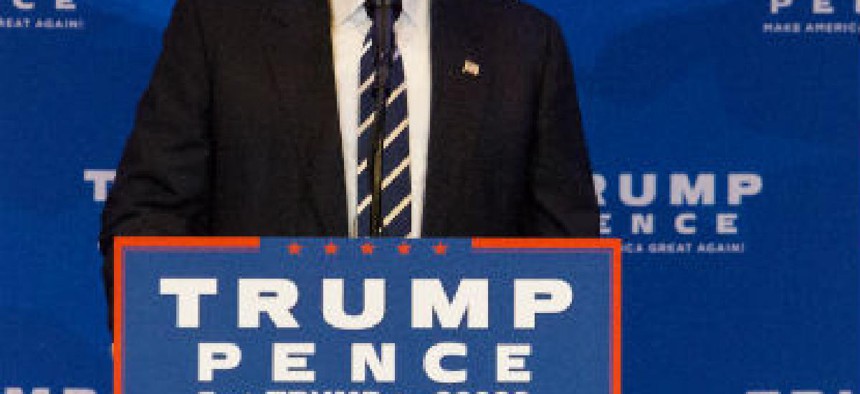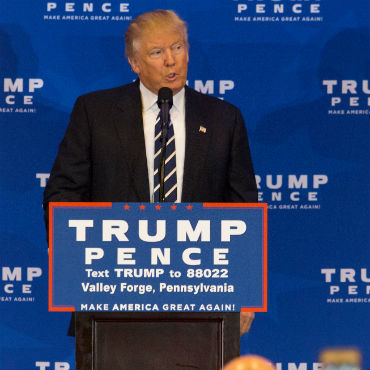Transition moves into high gear

President-elect Donald Trump's transition team has 73 days to get ready to take over the federal government.

In 73 days, the Trump administration will assume responsibility over a $4 trillion federal budget, be charged with filling more than 4,000 political positions and inherit control over the sprawling federal enterprise.
Both major party candidates began preparing for the transition earlier than ever before, which will serve as a significant head start for the incoming administration, said David Eagles, director of the Center for Presidential Transition at the Partnership for Public Service.
"The Trump team has taken governing the country very seriously in the planning phase," he said.
Eagles broke the transition into three parts: appointments, policy and what he called general president-elect support, which includes government operations and scheduling assistance.
In the past, presidential candidates have almost exclusively focused on Cabinet positions before the election, but this year, they took the time to learn the requirements of the politically appointed positions, Eagles told FCW.
For appointments that require Senate confirmation, that chamber's Republican majority should make the approval process smoother. Such positions include Cabinet officials, ambassadors, certain agency directors and justices of the Supreme Court, which has an open seat.
To help new political appointees navigate agency operations, the Senior Executives Association, the professional association of current and retired Senior Executive Service members, held webinars and produced guidance on management best practices that fills "a void we saw in transition work," SEA Legislative Director Jason Briefel said.
On the policy side, the transition teams have prepared plans for their first 100-plus days in office, Eagles said. "They've done a lot of research on what these federal agencies are doing. They're recognizing it's important to not just focus on the campaign topics."
To accomplish their goals, the transition teams are "focusing on technology as a critical enabler, linking technology to their campaign promises," and stressing the importance of cybersecurity, Eagles said. "Both had dedicated teams within their transitions focused on cross-agency issues" rather than addressing them in silos.
In the coming days, the president-elect is expected to gather a group of officials who will go to the agencies and strategize about what to do, Eagles added.
He said the Obama administration has done a "fantastic" job and provided a blueprint of how to handle an exit from the Oval Office.
President Barack Obama talked about the transition of power in the White House Rose Garden on Nov. 9. "It is no secret that the president-elect and I have some pretty significant differences," he said, comparing the presidency to a relay race. "I want to make sure that hand-off is well-executed because ultimately we're all on the same team."
As he has done previously, Obama praised the professionalism of the transition from George W. Bush's presidency to his own and pledged to meet those high standards.
Eagles lauded Obama's positive tone as what is "going to get us through this," adding "that message should and will resonate down with the coordinating councils."
But the transition assistance is not confined to the incoming and outgoing administrations. Eagles said Hillary Clinton's team expressed a commitment "to giving back so we can learn from this historically."
Due to the particularly virulent tone of the campaign, Eagles said he expects that the transition "will naturally be a time of anxiety" and there will be an uptick in resignations as people who do not want to work for the Trump administration leave.
However, he added that because of the pre-election efforts, the transition team understands the career workforce's role in fulfilling campaign promises and will work to make sure federal employees are ready to be effective starting Day One.


